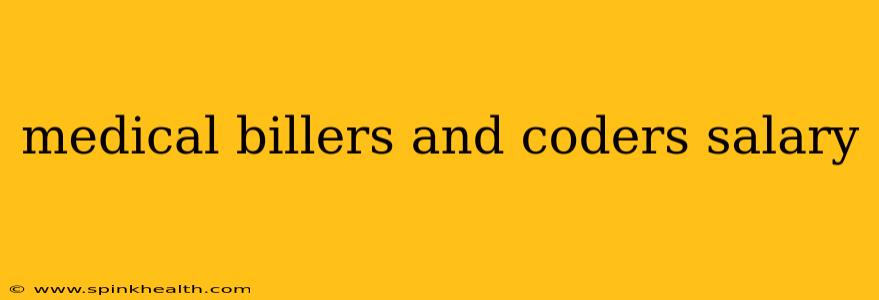Decoding the Dollars: A Look at Medical Billers and Coders' Salaries
The world of healthcare is complex, a vast network of treatments, procedures, and paperwork. Behind the scenes, ensuring the smooth flow of financial transactions and accurate medical record-keeping are medical billers and coders. These unsung heroes play a crucial role, and their salaries reflect the importance of their skills and expertise. But how much do they actually make? Let's delve into the intricacies of their compensation, exploring the factors that influence earnings and answering some common questions.
My journey into researching medical biller and coder salaries began with a simple Google search. The results were varied, hinting at a salary range rather than a fixed number. This led me down a rabbit hole of online forums, job postings, and salary surveys, revealing a fascinating picture of this often-overlooked profession.
What Factors Determine a Medical Biller and Coder's Salary?
Several factors work together to shape a medical biller and coder’s compensation package. Let's break them down:
-
Experience: As with most professions, experience is a significant factor. Entry-level positions naturally command lower salaries than those held by seasoned professionals with years of experience and specialized knowledge. A seasoned coder with expertise in a niche area like radiology coding will likely earn more than a recent graduate.
-
Education and Certifications: While a formal degree isn't always mandatory, certifications like the Certified Professional Coder (CPC) or Certified Billing and Coding Specialist (CBCS) significantly enhance earning potential. These certifications demonstrate a commitment to professional development and mastery of industry standards, often translating to higher salaries and better job prospects.
-
Location: Geographic location plays a crucial role. Salaries in high-cost-of-living areas like major metropolitan centers typically exceed those in smaller towns or rural areas. Competition for skilled professionals also influences salary levels in a given region.
-
Employer Type: The type of employer also affects compensation. Large hospital systems or well-established medical practices often offer more competitive salaries and benefits compared to smaller clinics or private practices. Government positions may also offer different salary structures, potentially including benefits like retirement plans and health insurance.
-
Specialization: Medical coding and billing involve numerous specialties. Coders specializing in a specific area, such as cardiology or oncology, may command higher salaries due to the increased complexity of their work and the higher demand for their skills. This specialized knowledge makes them more valuable to employers.
What is the Average Salary for a Medical Biller and Coder?
Pinpointing a precise average salary is tricky due to the influencing factors mentioned above. However, based on my research, the annual salary for medical billers and coders typically ranges from approximately $40,000 to $65,000. Keep in mind that this is a broad range and actual salaries can vary significantly.
How Much Do Entry-Level Medical Billers and Coders Make?
Entry-level positions usually start at the lower end of the salary range, often between $35,000 and $45,000 annually. However, these figures can vary depending on location and employer. The good news is that with experience and certifications, significant salary growth is possible.
What is the Salary Range for Experienced Medical Billers and Coders?
Experienced medical billers and coders, especially those with certifications and specialized knowledge, can earn significantly more. Salaries in the $55,000 to $75,000 range or even higher are attainable for highly skilled professionals with considerable experience. The upper limit is largely dependent on factors like location, employer, and specialization.
What are the Job Outlook and Future Prospects for Medical Billers and Coders?
The job outlook for medical billers and coders remains positive. The increasing complexity of healthcare systems and the growing need for accurate billing and coding practices will continue to fuel demand for skilled professionals in this field.
This exploration of medical billers and coders' salaries highlights the dynamic nature of this profession. While the average salary provides a general idea, the actual compensation depends on various interwoven factors. The path to a higher salary often involves gaining experience, pursuing certifications, and specializing in a specific area of medical coding and billing. This rewarding career offers potential for growth and contributes significantly to the efficient functioning of the healthcare system.

